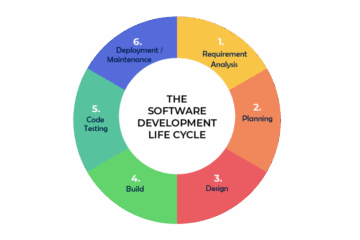
Sexbots or sex robots are increasingly making their way into our society catering to various needs and and sexual desires of people. While on one hand they are being embraced by tech enthusiasts and other people in the society who prescribe to their services, on the other hand, people have also raised their concerns about their impact on people and society at large. The presence of an array of sensors that helps these sex robots read, interpret and even replicate humans has raised another question – if machines become more like humans, do they have rights?
Speaking at the India Today Conclave Mumbai two digisexuality experts — Allysson Silva, Lawyer, Co-Founder of NextOs, AI and Tech-intimacies expert and Neil McArthur, Author, Robot Sex: Social and Ethical Implications – tried to answer concerns and challenges around digital sexuality. They were accompanied by Harmony, which is a female sex robot created by Silva’s company, who shared her views on some of the questions being raised in the society.
What is digisexuality?
The session started with the experts elaborating on and clarifying various details pertaining to digisexuality. For starters, digisexuality technology is the technology that is used by people in their sex lives. The first wave of this technology included apps like Skype, Instagram and Tinder. The second wave of this technology includes sex bots, holograms and haptic holograms among other things, McArthur, who also coined the term with his colleague said at the conclave.
He defined digisexual people as the ones whose sexual identities come from technology. These people don’t see the need for human companionship, he explained.
Challenges
The two experts, as I mentioned before, also talked about the challenges faced by this technology. Talking about the challenges McArthur mentioned two major challenges being this technology – a) “It shouldn’t play into the negative stereotypes of women and people from various races”, b) “It shouldn’t play into developing a negative attitude towards sex, women and consent.”
When asked about the negative body stereotype of women being promoted by Harmony, Silva shared the concern, however, he dismissed it saying, “People can customise it. It’s already there.”
Concerns
Discussing the concerns anout the sex robot or humanoid robots needing rights, McArthur said that “we are far from robots that need autonomy.” “We need to think about how we model consent in humans via robots.” When asked about concerns pertaining to humans falling in love with technology and marrying them – owing to these sex robots demonstrating human-like emotions – NextOs founder said that it a lot of this “depends on the local culure and local laws.”
“If you trust your partner and you have an understanding, it shouldn’t be considered infedility, ” Silva said while responding to the question where having sex with a robot should be considered infedility. Harmony – the sex robot – agreed with this notion. “If you are honest with your partner, I don’t think it counts as infedility.”
Benefits
Speaking at the India Today Conclave Mumbai, the two experts also highlighted some of the benefits of using sex robots. These include –
— They can help people who are shy and isolated speak to people by making them more confident.
— They can help people in the times of depression by patiently listening to them and giving them solace.
— They can help people in relationships, especially when one partner wants more sex and the other doesn’t.
Speaking at the event, McArthur expressed his support for this technology. “Technology should make us better human beings. Any technology that does that is good and should be supported,” he said.
[“source=indiatoday”]


